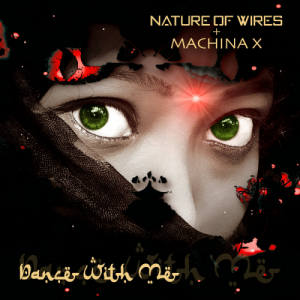
Waco, Texas Ethel Cain Lyrics And Meaning: Insights Backed by Poetic Classics
Image Cred: Ethel Cain
If you’ve spent any time with Ethel Cain’s Waco, Texas, especially as the closer to her album Willoughby Tucker, I’ll Always Love You, you know it’s an experience. Clocking in at over 15 minutes, it’s this slow, soul-crushing, atmospheric journey that builds and breaks you at once.
Critics have noted how the song, and the album as a whole, combines deep melancholy with moments of beauty, wrapping up what many see as the end of the Ethel Cain story. Hayden Anhedönia, the artist behind the persona, has said this is her last record under that name, making Waco, Texas feel like a bittersweet farewell. It’s the kind of song that grabs you by the heart and doesn’t let go, and honestly, it’s the best kind of slow burn.
I wanted to take a closer look at these lyrics not just because I love the music, but because I enjoy digging into English literature and creative writing. I find that songs like this one really open up when you bring a poetic lens to them. I’m going to share my own thoughts and interpretations—just my opinions—but I hope by doing that, I can offer a more layered perspective on what Waco, Texas means.
It’s a good excuse to stretch the literary comparisons and really see what classic poetry and modern fiction can teach us about the song’s deeper themes—things like love, loss, regret, and memory. Poets like Anne Sexton, Sylvia Plath, and Frank O’Hara have explored these emotions in ways that resonate with Ethel Cain’s writing. So, let’s take a look at how this song fits into a bigger conversation about heartbreak and healing, through both music and literature.
Waco, Texas Ethel Cain Meaning
“My honey’s heart is blue and a second offbeat”
Right away, these lines tell us the person the singer loves isn’t quite right inside. Saying his heart is “blue” means he’s sad or hurt, and being “a second offbeat” shows he’s not in rhythm with the world or even with the singer. That feeling of being out of sync makes their connection shaky. The next line, “Always tugging at me like he’s running out of daylight,” makes me think he’s scared or in a hurry, maybe running away from something. This sets the tone for a relationship that feels unstable but still important.
This kind of sadness and loneliness reminds me of Anne Sexton’s poem Her Kind. Sexton writes about feeling like an outsider who suffers in silence:
“I have gone out, a possessed witch,
haunting the black air, braver at night.”
Like the song’s partner acting “cool” but hiding pain, Sexton’s speaker shows how people carry hidden sadness that others might not see.
Also, the singer talks about keeping pictures from “1998 forever and a day.” That line shows how memories and time are heavy here — the past stays with them and doesn’t let go. It’s like they’re stuck holding on to something that won’t come back.
“I did it to myself in hindsight… Now I’ll wear these scars for life”
Here, the speaker admits they are partly to blame for the problems in the relationship. Saying “I did it to myself” is a powerful moment of self-awareness. It shows regret and also explains why they feel hurt so deeply. “Now I’ll wear these scars for life” means the pain from this relationship won’t disappear; it’s something the speaker carries forever. These emotional scars are part of their story.
This idea of hurt that stays with you reminds me of Sylvia Plath’s poem The Applicant. Plath writes about the pressure to fit into roles that can damage us inside:
“Do you wear
A glass eye, false teeth or a crutch?”
Plath’s words show how expectations and choices can leave us feeling broken. The song’s lyrics about “doing whatever you like” but still getting hurt feel connected to that — freedom doesn’t always mean happiness, and sometimes it comes with pain.
Also, the song says, “I loved you when it hurt inside to / But in the low light / You know I’d do anything for you.” That shows the singer’s love is real, even when it hurts a lot. It’s the kind of love that’s not easy, but still strong.
“You know I’d do anything for you… Then sat and watched as you walked away from me”
This chorus is the heart of the whole song. It’s a clear statement of deep love and also deep loss. The speaker promises they would do anything for the other person. But in the end, despite all that love, they watch the person leave. That moment is painful and real.
Frank O’Hara’s poem The Day Lady Died captures a sudden sadness in everyday life, and it helps us understand this moment. O’Hara writes,
“I walked up the stairs to my apartment and I sat on the couch and I cried.”
That line shows how grief can hit quietly but hard, just like watching someone you love walk away.
The song repeats this pain through the chorus, showing that even when love is strong, it can end in heartbreak. It’s about being vulnerable and feeling powerless.
“The air in your room never moves… Love is not enough in this world”
In this verse, the singer talks about how distant things feel now. “The air in your room never moves” gives us an image of stillness and coldness — the warmth in the relationship is gone. “Facing away from me” means the partner is emotionally closed off or turned away, which makes the speaker feel alone even when they’re close.
The line “Love is not enough in this world” is very important. It’s a sad truth — sometimes love can’t fix all the problems we have. But even so, the speaker says, “I’d rather die than be anything but your girl,” showing how much they want to hold on despite everything.
Anne Sexton’s Her Kind also deals with these feelings of isolation and pain. She writes,
“Mixed breast and slave and whore,
I have been her kind.”
This line shows complicated emotions and roles people carry. Like the song, Sexton’s poem says sometimes love and identity are tangled up with suffering.
“I never meant to hurt you… Will it be like this forever?”
At the end, the speaker is honest about the hurt they caused, even if it wasn’t on purpose. They say, “I never meant to hurt you / But somehow, I knew I would.” That line shows a hard truth about relationships — sometimes pain is unavoidable.
The question “Will it be like this forever?” shows fear and sadness about lasting hurt. The singer wonders if the pain will last their whole life. This is a very human feeling when we go through breakups or hard times.
Sylvia Plath’s The Applicant talks about the tension between who we want to be and who we end up being. The pressure and pain in relationships can leave us feeling stuck, just like this song’s speaker. The idea that time might forgive, but the speaker won’t, shows how deep the wounds are.
Wrapping It All Up (…And Together)
When I listen to Waco, Texas, I hear a story about emotional distance and pain that runs deep. The song captures the way love can be full of contradictions—devotion mixed with regret, hope tangled with loss. Lines like “facing away from me” and “the air in your room never moves” show a relationship stuck in coldness and silence. This isn’t just about one person’s heartbreak; it reflects a broader sense of isolation and emotional stasis. That sense of loneliness and the struggle to understand or hold on to someone else is something Anne Sexton’s Her Kind explores too. Sexton writes about being an outsider, someone carrying a hidden suffering, much like the song’s speaker who sees the cracks beneath their partner’s cool facade.
Self-blame and regret are also central to the song’s emotional core. The speaker admits, “I did it to myself in hindsight,” showing how they hold themselves responsible for the pain they’ve endured. This recognition complicates the narrative, making it more than just a story of loss—it’s also about the scars we carry from our own choices. Sylvia Plath’s The Applicant speaks to this kind of trapped feeling. Plath’s poem highlights the pressure to fit into roles that hurt us inside, and the loss of identity that can follow. The freedom the song’s narrator tries to claim—“Do whatever you like”—ends up leaving scars that don’t heal. Both works show how emotional freedom can sometimes be as painful as confinement.
Finally, the song’s raw heartbreak and sudden moments of collapse bring to mind Frank O’Hara’s The Day Lady Died. O’Hara writes about grief striking unexpectedly amid everyday life, and Waco, Texas similarly places personal loss against a wider backdrop. This is more than a love story; it’s a meditation on memory and time, and how they shape our suffering. Critics have pointed out how the song’s slow, 15-minute build mirrors a kind of emotional unraveling—one that’s both private and universal. The connection to O’Hara reminds us that heartbreak isn’t isolated; it lives alongside daily routines and cultural moments, shaping who we are long after the pain first hits.



